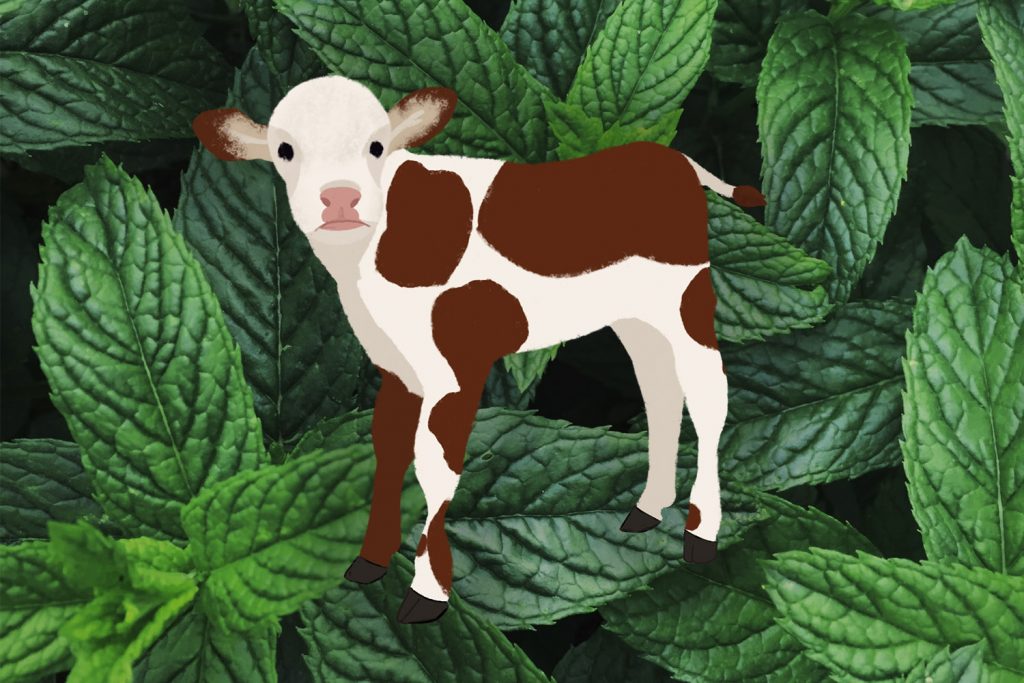07 Aug Use of essential oils to improve respiratory function in calves

Raising healthy calves is key in the long-term profitability of the dairy farm. Supplementation with essential oils helps to improve gut health and to maintain normal respiratory function, supporting the development of highly productive calves from day one.
Respiratory diseases are the second leading cause of mortality in calves, behind diarrhea. The typical signs include elevated temperature, breathing disorders, cough, eye and nasal discharge, ear droop, head tilt, low milk intake, slow response at feeding times and lethargy. The riskiest moments are when calves are 3-4 weeks of age and after weaning.
Viruses (parainfluenza, infectious bovine rhinotracheitis, bovine viral diarrhea virus, bovine respiratory syncytial virus), bacteria (Salmonella, Pasteurella multocida, Mannheimia hemolytica, Haemophilus somnus) and mycoplasma (Mycoplasma bovis) are the most common causes of respiratory diseases in calves. Mixed infections are becoming increasingly common.
Risk factors include:
- Sudden changes of weather.
- Big temperature gap between day and night.
- Levels of humidity above 80%.
- Poor colostrum intake. Calves that don’t consume enough colostrum are often affected by respiratory diseases before 14 days of age.
- Failure of passive immune transfer from the cow to the calf.
- Stressors, such as changes of group or house or weaning.
- Poorly ventilated barns.
- Overcrowding; mixing calves of different ages; grouping the animals too early; big groups of animals, especially at weaning.
PREVENTION OF RESPIRATORY DISEASES IN CALVES
Certain essential oils help to keep the respiratory system healthy in calves from birth to weaning. Selected essential oils have natural antibacterial and antiviral properties, increase general immunity, stimulate feed intake and improve daily weight gain.
Respiratory diseases are best prevented with a combination of essential oils and good practices, such as:
- Keeping the calves dry, through a clean, dry bedding and a well ventilated barn.
- Preventing cold-stress in calves up to 21 days of age.
- All-in-all-out system in the barns; having effective cleaning and disinfection systems in place.
- Avoiding overcrowding.
- Keeping individual hutches for young calves, where the animals cannot have contact among them.
- Setting up transition pens with small groups of weaned calves.
- Providing enough colostrum and as soon as possible after birth.
- Ensuring that the milk replacer is of good quality and contains enough protein. Deficiencies of protein impair the development of the immune system.
- Setting up an effective vaccination program of the whole herd.
- Being able to diagnose early every outbreak of respiratory diseases, in order to administer the proper treatment as soon as possible.
TREATMENT
The treatment should always target specifically the causative agent of the disease together with the symptoms. It may include antibiotics, anti-inflammatories, bronchodilators, mucolytics and oral rehydration fluids; however, the effectiveness of antibiotics against respiratory infections in calves is often disappointing.
In calves that are already affected by respiratory diseases, essential oils are a complement to the treatment kit, with the following effects:
- Naturally reduce the viscosity of the mucus and promote its elimination.
- Complement the action of antibiotics, increasing their effectiveness.
- Reduce coughing and other signs of respiratory diseases.
- Promote feed intake.
Essential oils with respiratory action can be mixed in the milk replacer, added to drinking water and sprayed in the environment of the barn.
Products of choice
PlusBreathe© contains essential oils with natural antiseptic, antioxidant, expectorant and mucolytic activity. It has a refreshing taste.
It is indicated to improve the functioning of the respiratory system and to mitigate heat stress in birds, ruminants, pigs and rabbits of all ages. It can also be nebulized in the farm environment.

Certain health statements may not be applicable in your region.

